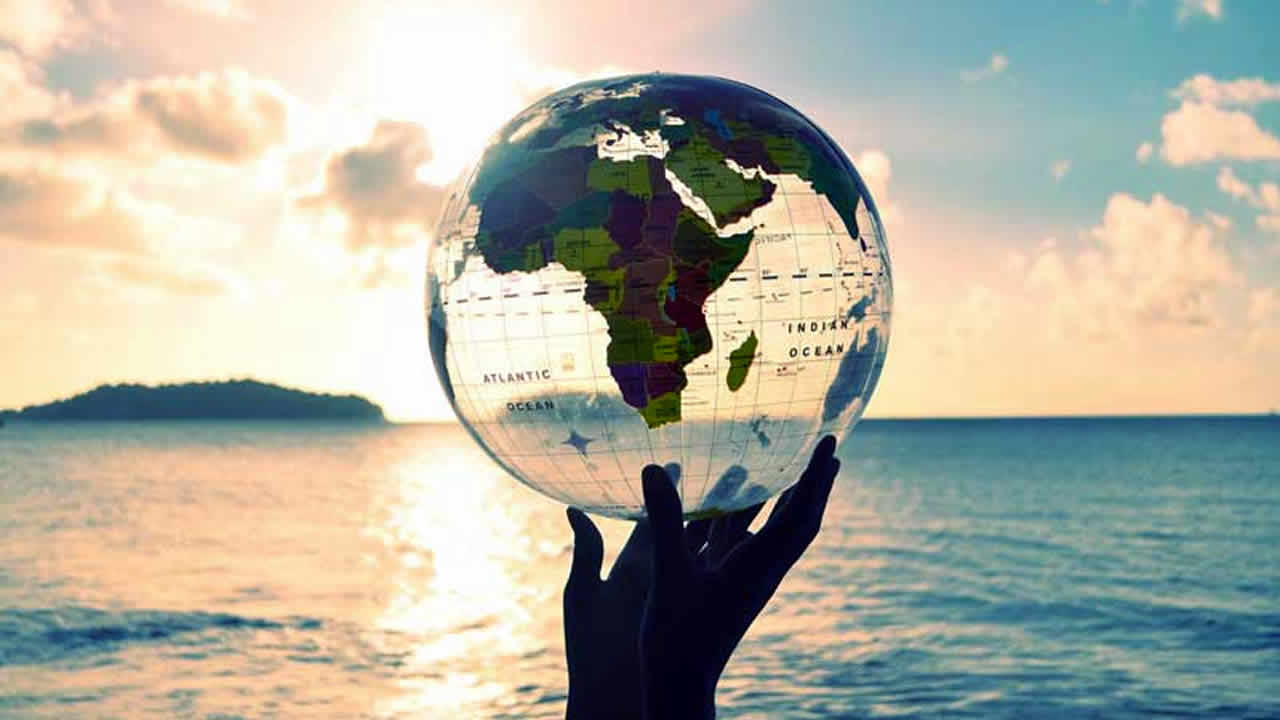
Once known as the Dark and Hopeless Continent by economists around the globe, Africa, centuries later, is being referred to as the Rising Continent. Various countries across the world are showing much interest in African countries including Mauritius, which has been having a long-lasting presence among the African countries.
Africa, the sleeping Giant, as described by Donald Kaberuka, the 7th President of the African Development Bank Group, is attracting investors from different parts of the world. Mauritius should not lag behind. Accordingly, Mauritian manufacturers have already established its footprint in countries like South Africa, Madagascar and Kenya and now are earmarking countries like Zimbabwe, Comoros, Seychelles, Rwanda and Mayotte. Nevertheless, there are various other opportunities Mauritius needs to exploit.
According to statistics, over the last decade, the sub-Saharan region has been experiencing a growth rate of 5 to 6%. As per the forecasts of International Monetary Fund, six of the ten best-performing economies in the next five years will still be in this region, which offers a market of 840 million people, with a purchasing power of $ 1.9 trillion. Moreover, the United Nation figures demonstrate that South Africa and Nigeria receive the largest volume of foreign investment, while countries such as Angola, Ghana, Guinea, Zambia, Kenya, Tanzania or Uganda are performing well.
According to Economic Development Board (EDB), Mauritius emerged as an outward investor in the 1990s with annual outflows averaging Rs 400 million, gradually rising over the years. Outward Direct Investment (ODI) last year was to the tune of Rs 2.5 billion representing a 38% increase compared to 2016. “Our records show that Mauritian companies have set up around 120 business units across 24 countries in Africa. The success is evident by the progressing presence of clusters of Mauritius-based operators such as banks, sugar producers, textile operators and professional service providers, be it in the educational sector, legal, financial or ICT services on the continent. Mauritian-owned assets in Africa are bringing economic dividends to our country.”
As highlighted by Ken Poonoosamy, Mauritian companies continue to extend their footprint on the continent and countries like Kenya, Mozambique, Madagascar and Reunion have attracted significant investment. “In 2017, Outward Investment was geared primarily in the financial services sector (44%), manufacturing sector (24%) and real estate activities (23%). To promote trade, the Credit Guarantee Insurance Scheme, Freight Rebate Scheme and Participation in International Fair SMEs Refund Scheme were introduced.”
To promote investment across the continent, Mauritius can rely on its membership with the Multilateral Investment Guarantee Agency (MIGA) and on the 21 Double Taxation Avoidance Treaties (DTAAs) and 23 Investment Promotion and Protection Agreements (IPPAs) signed with African nations. Furthermore, Special Economic Zones (SEZs) are being developed across selected economies to expand the economic reach of Mauritius-based entrepreneurs. So far, the Special Economic Zone (SEZ) in Senegal is ready to welcome its first operators while a Mauritius-based construction company will start the construction of the twin technology towers at the SEZ Biotechnology, Information and Communication Technologies Free Zone (ZBTIC) in Côte d’Ivoire. SEZ development is also underway in Ghana and Madagascar.
Mauritius has forged a reputation as a safe, trusted and competitive financial centre, says Ken Poonoosamy. “The country has been at the forefront of driving quality investments into Africa. The international investing community chose Mauritius as its preferred hub for its Africa-bound operations and investments, mainly because the country has established itself as a robust, transparent and reliable business-friendly jurisdiction. This is evident with the growing relevance of the Mauritius International Financial Centre (MIFC) in directing Private Equity funds onto the continent. For the year 2016, total inbound investments in Africa stood at USD 59 billion, out of which nearly 50% went through Mauritius. Besides, more than 450 private equity funds are domiciled in the Mauritius IFC and investing in the African continent. Last year, nearly USD 30 billion investments directed to Africa were structured through Mauritius.”
Recently, to further boost intra-regional African trade and investment, Mauritius supported the Tripartite Agreement between SADC, COMESA and the EAC (East African Community), underlines the Deputy CEO of EDB. Mauritius was also among the 44 countries out of the 55 member States of the African Union to have signed the Continental Free Trade Area (CFTA). The Government is aggressively driving forward an African Economic Strategy that will create sustainable economic corridors with African trading blocs and selected economies across the region: SADC - 1995, COMESA - 1981, IOC - 1982, IORA - 1997, Tri-Partite Agreement with EAC - 2017 and Continental Free Trade Agreement - 2018.
Ken Poonoosamy: “It is crucial that Mauritius builds its International Financial Centre”
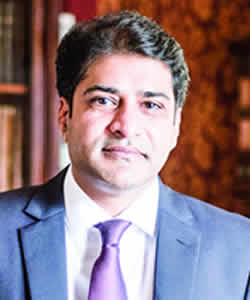
According to Ken Poonoosamy, the EDB is expanding its network across the continent through MoUs with African Investment Promotion Agencies (IPAs) and positioning Economic Counsellors in selected capital cities on the continent. “The EDB also holds the directorate for Sub-Saharan Africa with the World Association of Investment Promotion Agencies (WAIPA). To that end, the EDB, in association with WAIPA, will host the 3rd edition of the Africa Partnership Conference (APC) in March 2019. This third edition’s focus is to bring together project promoters, investors and project financiers.”
The perspectives are dovetailed towards developing the key attributes to position Mauritius as the ideal platform for promoting trade and investment across Africa, says Ken Poonoosamy. “The continent boasts 13% of the world population, with over 50% under the age of 20. It has over 30% of the world minerals reserves and around 60% of world’s arable land. The World Bank recently stated that Africa is where China was 30 years ago, and India was 20 years ago and looking at the high GDP growth that both have experienced for the past 20 years, it is evident that Africa will be the main contributor to the world’s economic growth in the medium to long term. Hence, it is crucial that Mauritius builds its International Financial Centre to capture the bulk of projects and investments aimed at building the infrastructure and capacity for Africa.”
The different opportunities
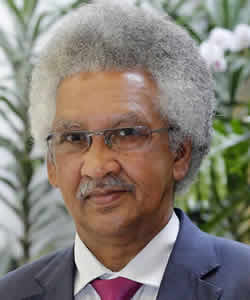
There exist oceans of opportunities in the different African markets for Mauritius. Treaties and free trade access to COMESA and SADC member countries already allow Mauritian exporters to sell to 27 African countries at duty-free rates. Additionally, with direct air connectivity to six destinations in Africa, it has become easier for exports of goods.
Dev Chamroo, Senior Consultant, CITC - Mauritius underscores that Africa is a USD 3 trillion economic space, comprising 54 countries and has a population of 1.2 billion people and is still growing. “With its large resources based in terms of headcounts, arable land, mineral deposits, fast urbanization and its largest youth population, Africa is a market for “Made in Mauritius” products and services, a destination for Mauritian and Mauritius-based investments, a source for valuable resources and inputs to boost our industrialization and diversification, a training ground for our enterprises to test and build their capabilities prior to venturing into more sophisticated markets, and Africa is a market for our professionals.”
According to Pamela Leste, Manager, Economic, Market Analysis & Sustainability Corporate Finance at BDO, the continent offers a myriad of opportunities to both individuals and companies. “To start with, young professionals in diverse fields (IT, accounting, finance, management, HR, and so on) are being recruited in various cities including Nairobi, Cape Town and Abidjan. The more skilled are taking up leadership roles in the corporate sector world or in Pan African organizations such as SADC, the African Development Bank, sharing their know-how and skills for the advancement of the continent. Consultancy firms are accompanying investors in their ventures. And not least companies are investing in Africa through a stake in current companies or setting up new entities to do what they know best, e.g. sugar milling, fertilizer, logistics and recently we have seen acquisitions of banks, among others.”
Amédée Darga, director of Straconsult, explains that opportunities are still abundant and in a wide spectrum of sectors in many African countries, but that will be reduced slowly over the next decade as Africans themselves capture this good business. “Whether in trade, in manufacturing, in agricultural production, in IT and in a number of service activities such as training, opportunities are abundant. Opportunities are there whether you are big, medium or small entrepreneurs. I know simple single mechanics that went to Botswana and became owners of biggest vehicle repair businesses. A Mauritian owns one of the biggest road haulage businesses in Mozambique. A Mauritian entrepreneur that would grow tomato on a large scale in Namibia and produce tomato puree or another who would set up even an SME to produce shirts would make a killing.”
Former Director of the Trade Policy Unit at the Ministry of Foreign Affairs, Assad Bhuglah argues that Mauritius is bound to Africa through various trade agreements, namely the SADC Free Trade Area, the COMESA Free Trade Area, the Tripartite Free Trade Area and the Continental Free Trade Area. “These agreements provide preferential market access to Mauritian products and in most cases, duty free. The market is huge. We are speaking of 500 million consumers if we just stick to the regional markets of SADC and COMESA. When the Continental FTA will come into operation, the market will be even greater, amounting to 1 billion consumers. One may argue that the majority of the Africans do not have strong purchasing power. But it has to be reckoned that there is an emerging African middle class which is lavish in spending.”
Tapping into the potentials of African Market
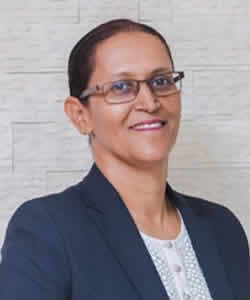
According to the Overseas Private Investment Corporation (OPIC), Africa offers the highest return on Foreign Direct Investment (FDI) in the world. Investment in African countries has doubled since the past years. Experts in the fields list how Mauritius can tap into the potentials of African Market.
Collaboration and partnership
Pamela Leste underlines that the African market represents 54 countries and nearly one billion of consumers. “Many countries are fast growing and so are their needs for all types of consumer and durable goods. Our companies and individuals can take part in this development, producing or distributing to meet the needs of the population.” She also adds that the successful recipe requires of course several ingredients: market intelligence, cultural knowledge, physical presence, finance but also collaboration and partnership. “Each country has a different potential and is not limited to oil/gas or arable land. Foreign investment cuts across hospitality, finance, automobile, retail, education, among others. The pre-requisite to any investment is a comprehensive understanding of the country and sector. There is no need to rush, it all starts with small projects. Fifty-four different markets present 54 different opportunities and understanding local culture, local rules and local realities are key to success.”
Mauritius Africa Fund
For the director of Straconsult, by sitting in Mauritius, one cannot tap into the potentials of African Market. He argues that if one wants to pick up business opportunities in Africa, the person must go there. “You must be ambitious, and accept to do business most of the time in a differently formatted business environment. Either takes time to understand the ways and means or invest in an adviser who knows how to walk through thorns without being scratched badly and pick the good fruits while avoiding the snake. The Mauritius Africa Fund should support entrepreneurs to develop business in Africa by putting in a small 5 to 10% of equity in their business. With this flag, they would have added security and also be able to raise finance more easily.”
A strategy for export services
While the potentials are huge for a wide range of products, the structure of Mauritian economy is such that it can produce only a handful of products such as textile, clothing, sugar, seafood and rum, says Assad Bhuglah. “To compensate its limitations in export of manufactured goods, Mauritius must develop a strategy for export services to Africa, such as professional services in the area of accountancy, auditing, consultancy, health, education, construction and IT. Mauritius can participate in the African supply chain through the Special Economic Zone (SEZ) by using Mauritian know-how and capital for production in an African territory with the objective of exporting the finished goods to third countries like Europe, US and China.”
Extensive Market research
For Dev Chamroo, Africa is a very diverse Continent and access to all the 54 markets is not possible and not advisable as well. “First we must identify the opportunities that each market offers to Mauritian economic operators: to our exporters and potential exporters and to our investors. There must extensive market research on each country. Data must be collected, analyzed and disseminated to our economic actors to enable them make evidence-based decision on which market to enter and which to avoid. Such intelligence will also help government make informed decisions.”
Reinforce our economic diplomacy
Another major step as highlighted by Dev Chamroo is to reinforce our economic diplomacy. “Mauritius presently has diplomatic presence in South Africa, Madagascar, Mozambique, Egypt and Ethiopia for diverse reasons. It is time to revisit our economic and diplomatic strategies. We must have a clear Africa Strategy that meets the aspiration of the Nation to become the Financial and Economic Hub of Africa. Such policy must have the inputs of the private sectors and should not be designed and developed in silos. Once such a strategy is in place, there should be affirmative actions by the Government, staring from the highest political order. The Prime Minister must have at least one State visit, every year, to a selected African Country, accompanied by large number of investors and exporters. Thereafter, sector specific missions led by Ministers, again accompanied by economic operators, should be organized every quarter. This must be followed by regular well-structured economic missions and visits by Trade Support Institutions (EDB, SME Mauritius, MTPA, Chamber of Commerce and Industry).”
Appoint trade and investment professionals
Dev Chamroo states that it is time for actions on the ground. “It is time to appoint trade and investment professionals in key capitals of Africa to identify business opportunities and to help Mauritian entrepreneurs through hand-holding. To avoid, at all cost, political appointees. The participation of Mauritius in Special Economic Zones in Ghana, Senegal, Cote D’Ivoire and may be in Madagascar is a welcome initiative. The question is how these countries were chosen. Were the economic operators consolidated ex-ante or ex-post?”
Where to invest?
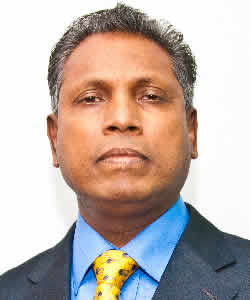
Pamela Leste reveals that African countries are ahead of us in various sectors such as in IT, Telecom, Mobile Wallet, and Bio Agro Produce. We are playing catch up and we are at a comparative disadvantage to add value. European countries, USA, India and China have selected the resource rich countries: minerals and crops that they need back home. Our needs are different and so are our capabilities. If we want to tap into the largest markets, we opt for the populous countries: Nigeria, Ethiopia, Egypt, and DRC. The barriers to entry are high in those markets. If we want to serve the French speaking countries, it will be mostly West Africa. They are far from us to reach but from Dakar to USA, it’s about a week by ship! If we look at business friendliness, it’s mostly Tanzania, Rwanda, Kenya, Botswana and South Africa. We often focus on coastal countries but there are also landlocked countries with a very good potential: Rwanda, Uganda, Zambia, and Malawi.”
The influx of products from Egypt are giving consumers a larger choice and value but they are more and more representing a major threat to our local manufacturing companies, says the Manager from BDO. “There are many forces at play including bilateral agreements but if we are not intelligent in our approach, we may end up with a deteriorating balance of trade and huge layoff following corporate collapse. We need to rethink a new export strategy for our local manufacturing sector into Africa.”
For Dev Chamroo, Mauritius should look at countries in COMESA and SADC in which our country is an active member. “South Africa is very important for both our Exports and for attracting inward FDI. Kenya is showing good potential. Madagascar remains vital for our outward investment, as it complements our exporters to maintain acquired markets in South Africa, EU and USA. We should develop a Hub and Spoke Strategy to optimize our reach-out to Africa by selecting countries that offer best opportunities for both Trade and Investments. We should explore Mozambique, Tanzania, Ethiopia, Egypt and DRC for investment and trade. We should avoid politically unstable countries and those offering competing products. To increase our footprint on Africa, we need to make evidence-based policies and decisions. It is time for an Economic Intelligence Unit for Africa.”
 J'aime
J'aime













